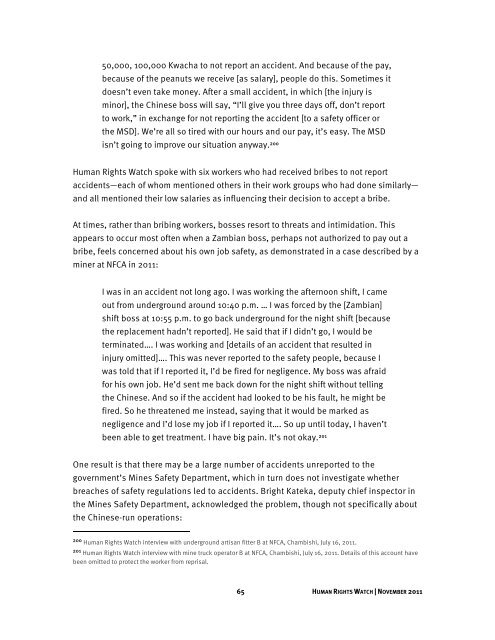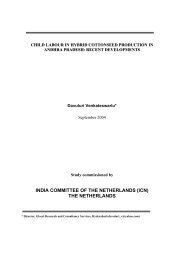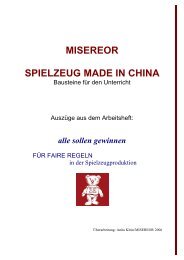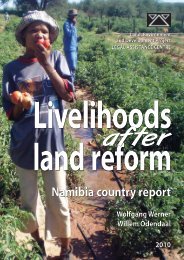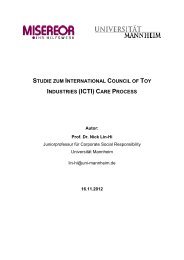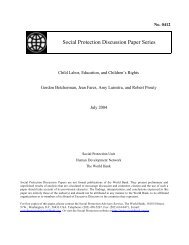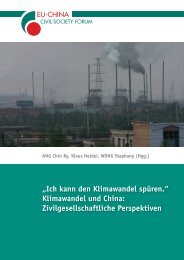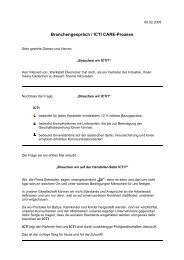“You'll Be Fired if You Refuse†- Human Rights Watch
“You'll Be Fired if You Refuse†- Human Rights Watch
“You'll Be Fired if You Refuse†- Human Rights Watch
Create successful ePaper yourself
Turn your PDF publications into a flip-book with our unique Google optimized e-Paper software.
50,000, 100,000 Kwacha to not report an accident. And because of the pay,<br />
because of the peanuts we receive [as salary], people do this. Sometimes it<br />
doesn’t even take money. After a small accident, in which [the injury is<br />
minor], the Chinese boss will say, “I’ll give you three days off, don’t report<br />
to work,” in exchange for not reporting the accident [to a safety officer or<br />
the MSD]. We’re all so tired with our hours and our pay, it’s easy. The MSD<br />
isn’t going to improve our situation anyway. 200<br />
<strong>Human</strong> <strong>Rights</strong> <strong>Watch</strong> spoke with six workers who had received bribes to not report<br />
accidents—each of whom mentioned others in their work groups who had done similarly—<br />
and all mentioned their low salaries as influencing their decision to accept a bribe.<br />
At times, rather than bribing workers, bosses resort to threats and intimidation. This<br />
appears to occur most often when a Zambian boss, perhaps not authorized to pay out a<br />
bribe, feels concerned about his own job safety, as demonstrated in a case described by a<br />
miner at NFCA in 2011:<br />
I was in an accident not long ago. I was working the afternoon sh<strong>if</strong>t, I came<br />
out from underground around 10:40 p.m. … I was forced by the [Zambian]<br />
sh<strong>if</strong>t boss at 10:55 p.m. to go back underground for the night sh<strong>if</strong>t [because<br />
the replacement hadn’t reported]. He said that <strong>if</strong> I didn’t go, I would be<br />
terminated…. I was working and [details of an accident that resulted in<br />
injury omitted]…. This was never reported to the safety people, because I<br />
was told that <strong>if</strong> I reported it, I’d be fired for negligence. My boss was afraid<br />
for his own job. He’d sent me back down for the night sh<strong>if</strong>t without telling<br />
the Chinese. And so <strong>if</strong> the accident had looked to be his fault, he might be<br />
fired. So he threatened me instead, saying that it would be marked as<br />
negligence and I’d lose my job <strong>if</strong> I reported it…. So up until today, I haven’t<br />
been able to get treatment. I have big pain. It’s not okay. 201<br />
One result is that there may be a large number of accidents unreported to the<br />
government’s Mines Safety Department, which in turn does not investigate whether<br />
breaches of safety regulations led to accidents. Bright Kateka, deputy chief inspector in<br />
the Mines Safety Department, acknowledged the problem, though not spec<strong>if</strong>ically about<br />
the Chinese-run operations:<br />
200 <strong>Human</strong> <strong>Rights</strong> <strong>Watch</strong> interview with underground artisan fitter B at NFCA, Chambishi, July 16, 2011.<br />
201 <strong>Human</strong> <strong>Rights</strong> <strong>Watch</strong> interview with mine truck operator B at NFCA, Chambishi, July 16, 2011. Details of this account have<br />
been omitted to protect the worker from reprisal.<br />
65 HUMAN RIGHTS WATCH | NOVEMBER 2011


